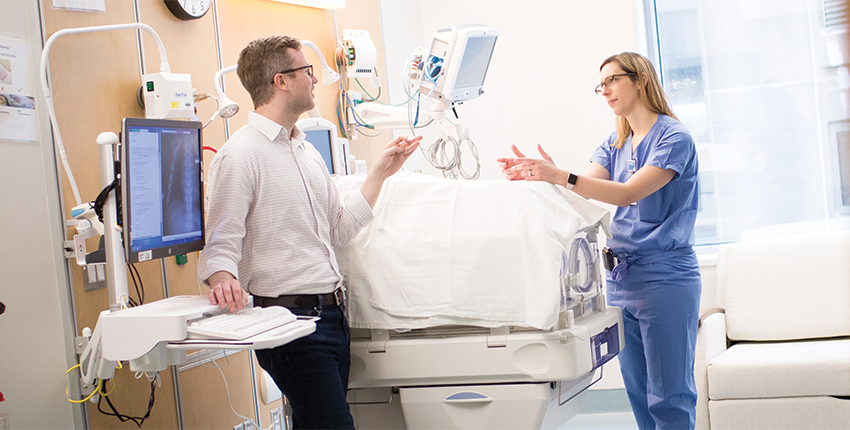Beamlab Vision
We are principally concerned with improving, stream-lining, and automating decision-making in healthcare through the use of quantitative, data-driven methods. We do this through rigorous methodological research coupled with deep partnerships with physicians and other members of the healthcare workforce. As part of this vision, we work to see our ideas translated into decision-making tools that doctors can use to better care for their patients.
Several specific areas of the lab's mission are discussed below. For more technical information, please see our publications page.
Instrumenting the NICU with Modern Predictive Tools
We are developing deep learning models to equip neonatologists with modern predictive tools to help them better understand and care for their patients. Infants born prematurely (before 37 weeks of gestation) experience very high levels of morbidity and are among the most expensive patients in all of pediatrics. NICU infants generate a tremendous amount of high-signal, multimodal data as part of their clinical care, but this data is currently under-utilized to inform decision-making.
These modalities are ones where deep learning has had tremendous success to date (e.g. imaging, text), thus there is an opportunity to create highly accurate predictive models for proactive decision-making. Specifically, we are interested in developing models in the following areas:
- Convolutional models for NICU imaging data including x-rays, ROP screens, and ultrasounds.
- Recurrent and transformer models for admission, progress, and discharge notes.
- Recurrent and transformer models of real-time monitoring data.
- Longitudinal disease trajectories built using large administrative databases.
This work is funded in part by a K01 award from the National Heart, Lung, and Blood Institute (NHLBI).
Automatic Diagnosis and Medical Reasoning with NLP/NLU
A large portion of the world's medical knowledge is in unstructured sources such as textbooks, websites, and biomedical journal articles. We are developing a large-scale natural language processing (NLP) and natural language understanding (NLU) system capable of extracting general medical and diagnostic principles from unstructured medical text.
For this project, we have created a unique collection of biomedical texts containing of 4.3 million articles, 50,000 pages of reference material, 15,000 flash cards, dozens of medical text books, and 20,000 multiple choice medical questions.
Using this data, we are creating models that can perform a broad range of medical reasoning tasks such as providing a differential diagnosis on the basis of a short textual description and answering complex medical questions posed in natural language.
This work starts with current state of the art NLP/NLU/QA models based on deep learning, but seeks to extend them with explicit forms of symbolic reasoning and other less traditional computational models that are not currently in vogue.
This work was funded in part by a Pioneer Award from the Robert Wood Johnson Foundation.
Methods development to move beyond deep learning
Deep learning has had tremendous success in medicine.
However, despite these successes deep learning models are in fact brittle and there are classes of problems that are not solvable by deep learning, even in principle. Moreover, at least in its current framing, nearly all of modern machine learning techniques are designed to give predictions, but what doctors often want are decisions.
This necessitates moving beyond simple correlation-based models towards ones with richer understanding of the world, and are capable of understanding the effects of interventions.
In collaboration with our colleagues in causal inference group at HSPH, we are exploring the interface of machine learning and causal inference methods.
This is a new, but very active, area of research and we are excited what new questions can be answered as machine learning models are imbued with a causal understanding of the world.


